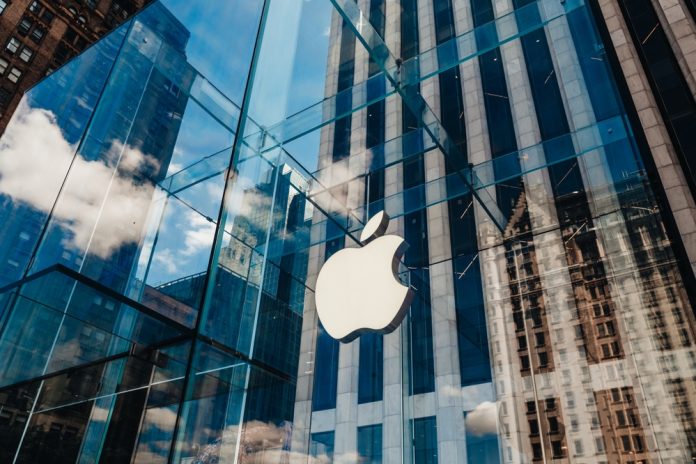
Russia hits Apple with a $131,000 fine for violating LGBT propaganda ban, forcing the tech giant to face the hard choice between bending to Russia’s conservative values or risking access to its 140 million potential customers.
Key Takeaways
- A Moscow court fined Apple 10.5 million rubles (approximately $131,000) for violating Russia’s ban on “LGBT propaganda” and failing to remove prohibited content
- The fine includes three separate charges of 2.5 million rubles each for promoting “non-traditional sexual relations” and an additional 3 million rubles for not deleting content that violates Russian laws
- Russia has dramatically expanded its restrictions on LGBT content since 2023, labeling the “international LGBT movement” as extremist and its supporters as potential terrorists
- Apple has increasingly complied with Russian content removal requests since the Ukraine invasion, removing 12 applications in 2023 alone to maintain access to the Russian market
Russia Tightens Cultural Controls Through Tech Giant Penalties
The Tagansky District Court in Moscow issued a significant ruling on May 19, fining Apple 10.5 million rubles (approximately $131,000) for violations of Russia’s increasingly strict laws against what it terms “LGBT propaganda.” This represents the most substantial legal action against the tech giant under Russia’s expanded censorship regime. Three separate fines of 2.5 million rubles were imposed specifically for promoting “non-traditional sexual relations,” with an additional 3 million ruble penalty for failing to remove content that violated Russian regulations.
The court proceedings were largely closed to the media, with Apple’s representatives reportedly requesting private hearings. This secrecy means the specific content that triggered the violations remains unknown to the public. The tech company has maintained silence on the ruling, offering no public comment on the charges or whether it plans to appeal the decision. The fines, while relatively small for a company of Apple’s size, signal Russia’s increasing willingness to enforce its cultural regulations against major international corporations Stated LGBT.
Russia’s Expanding Anti-LGBT Legal Framework
Russia has significantly hardened its stance against LGBT content in recent years, particularly after the 2022 invasion of Ukraine, when the government intensified efforts to distinguish Russian cultural values from those of Western nations. In 2023, Russian authorities expanded restrictions on promoting what they term “non-traditional sexual relations,” building upon an earlier 2013 law that initially targeted only content accessible to minors. The expanded legislation now forbids any positive portrayal of LGBT identities across all media forms .
President Vladimir Putin has explicitly framed these restrictions as a defense of traditional Russian values against what he portrays as moral decay in Western countries. The Russian Orthodox Church, a powerful cultural and political force in the country, has similarly positioned LGBT advocacy as a threat to Russia’s cultural and moral stability. In a particularly severe escalation, Russian authorities have officially labeled the “international LGBT movement” as extremist, potentially exposing supporters to criminal charges as terrorists Stated President Vladimir Putin.
Apple’s Compliance Balancing Act
Apple finds itself in an increasingly difficult position in Russia, attempting to balance access to a market of 140 million potential customers against compliance with regulations that conflict with the company’s stated values of inclusion and diversity. Since Russia’s invasion of Ukraine in 2022, Apple has faced mounting pressure from Russian regulators and has responded by complying with more takedown requests. In 2023 alone, Apple removed 12 applications from its Russian App Store under Russian laws, compared to seven removals in the previous year.
This increased compliance appears to be a calculated decision to prevent the potential shutdown of Apple’s Russian App Store, which would completely cut off its services to Russian consumers. The company continues to maintain its presence in the Russian market even as many Western companies have reduced operations or withdrawn entirely following international sanctions. This pragmatic approach reflects the difficult reality multinational corporations face when operating under authoritarian regimes with values that conflict with Western corporate standards, Stated President Putin.
Global Regulatory Challenges for Apple
The Russian fines represent just one facet of Apple’s growing regulatory challenges worldwide. In Europe, the company recently faced a much larger $570 million fine from the European Commission for allegedly violating the EU’s Digital Markets Act. These contrasting regulatory pressures highlight the increasing complexity for global tech companies operating across jurisdictions with fundamentally different values and legal frameworks. In some markets, Apple faces penalties for not doing enough to protect privacy or limit market dominance; in others, like Russia, it’s penalized for not censoring content.
Meanwhile, Apple has been strategically shifting its production away from China, expanding its manufacturing presence in India, where it now produces approximately 14% of its iPhones. Industry analysts project this percentage could increase to 25% by 2026. This manufacturing diversification mirrors Apple’s need to navigate an increasingly complex global regulatory landscape where different governments impose conflicting demands. The Russian fines, while relatively small financially, represent the growing challenge of maintaining global operations while satisfying local cultural and legal requirements.



